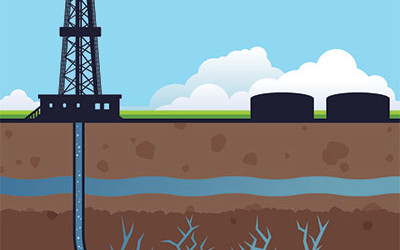As demand for natural gas in the United States increases, so does the incidence of hydraulic fracturing, or “fracking,” a process that involves drilling thousands of feet into the ground and injecting a high-pressure water, sand and chemical solution to crack open rocks and release natural gas. According to the U.S. Energy Information Administration, over a third of U.S. states are already home to such drilling sites.
Industry representatives and local advocates believe fracking can be a boon to rural communities in need of economic development, but environmentalists and health advocates are wary of the drilling’s long-term effects. Now there’s even more evidence to justify concern.
A three-year study headed by Lisa McKenzie, PhD, research associate at the Colorado School of Public Health, establishes that the air near fracking wells in western Colorado contains several toxic chemicals, including benzene, a proven carcinogen. People living within a half-mile of the Colorado wells have an increased risk of cancer, plus respiratory problems, eye irritation and headaches, says the study, which will be published in a forthcoming issue of Science of the Total Environment.
You can learn if fracking affects your area and get advice on how to protect yourself from potential health issues through the National Resources Defense Council at www.nrdc.org/health/drilling.

This Post Has 0 Comments